





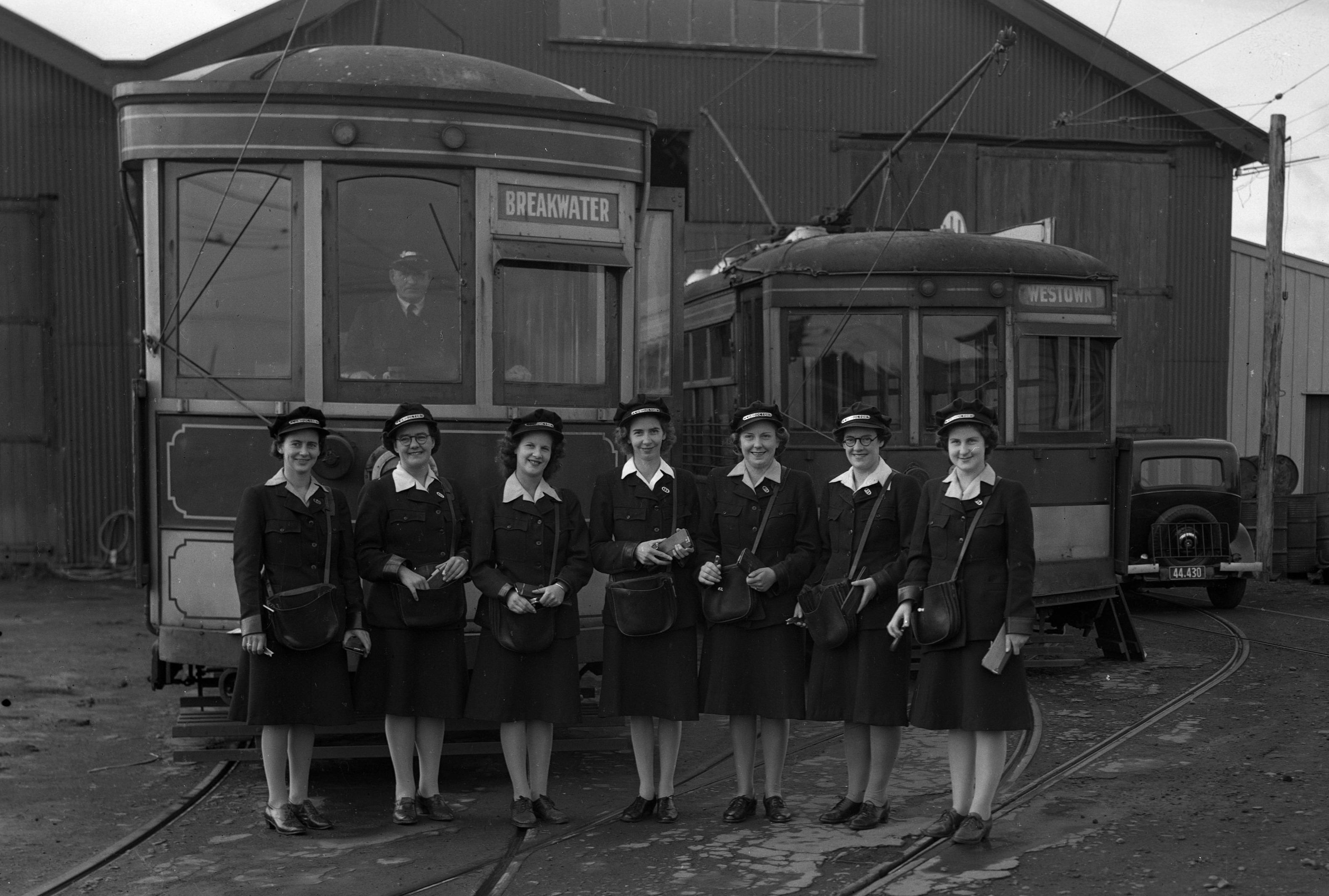
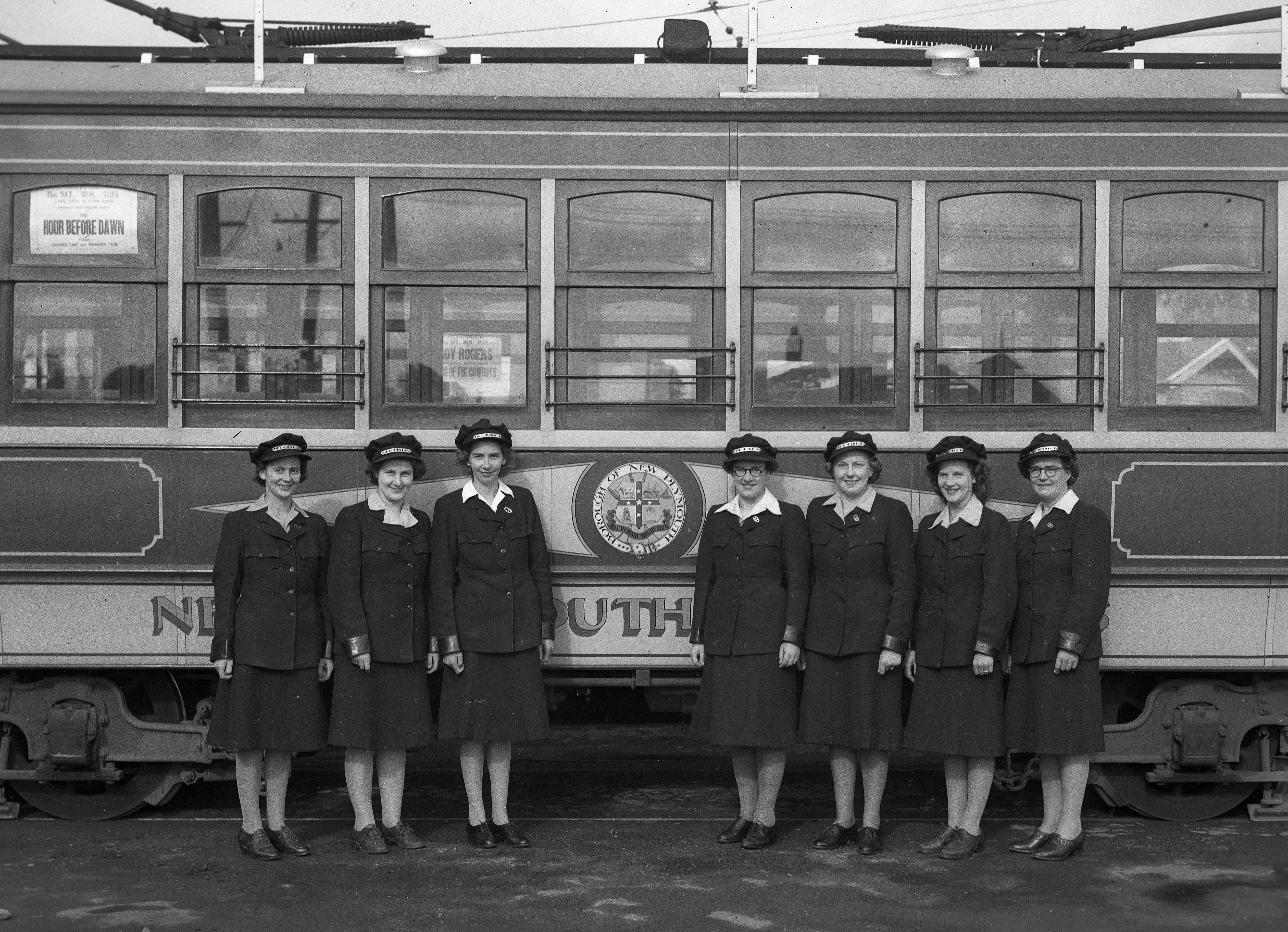
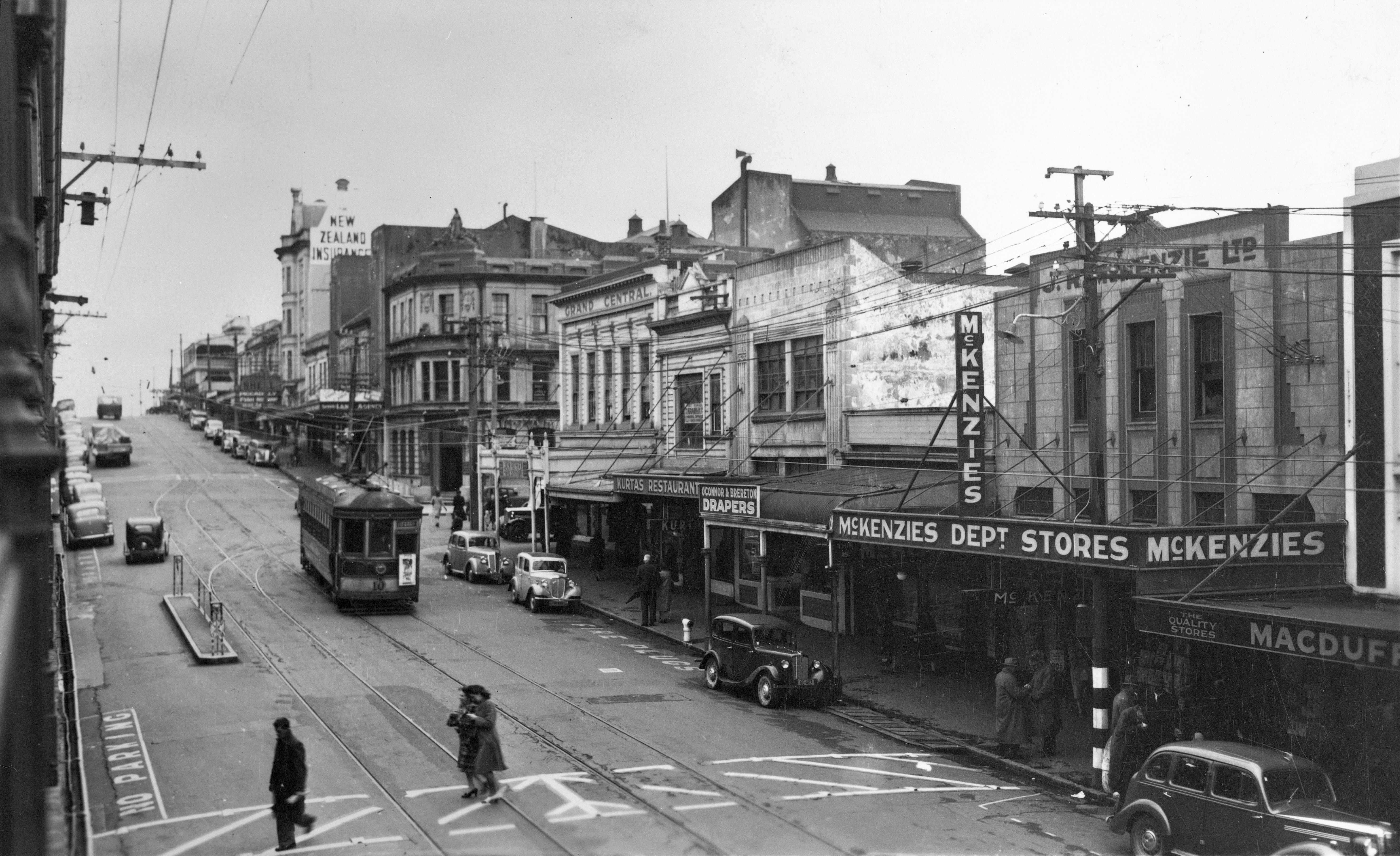
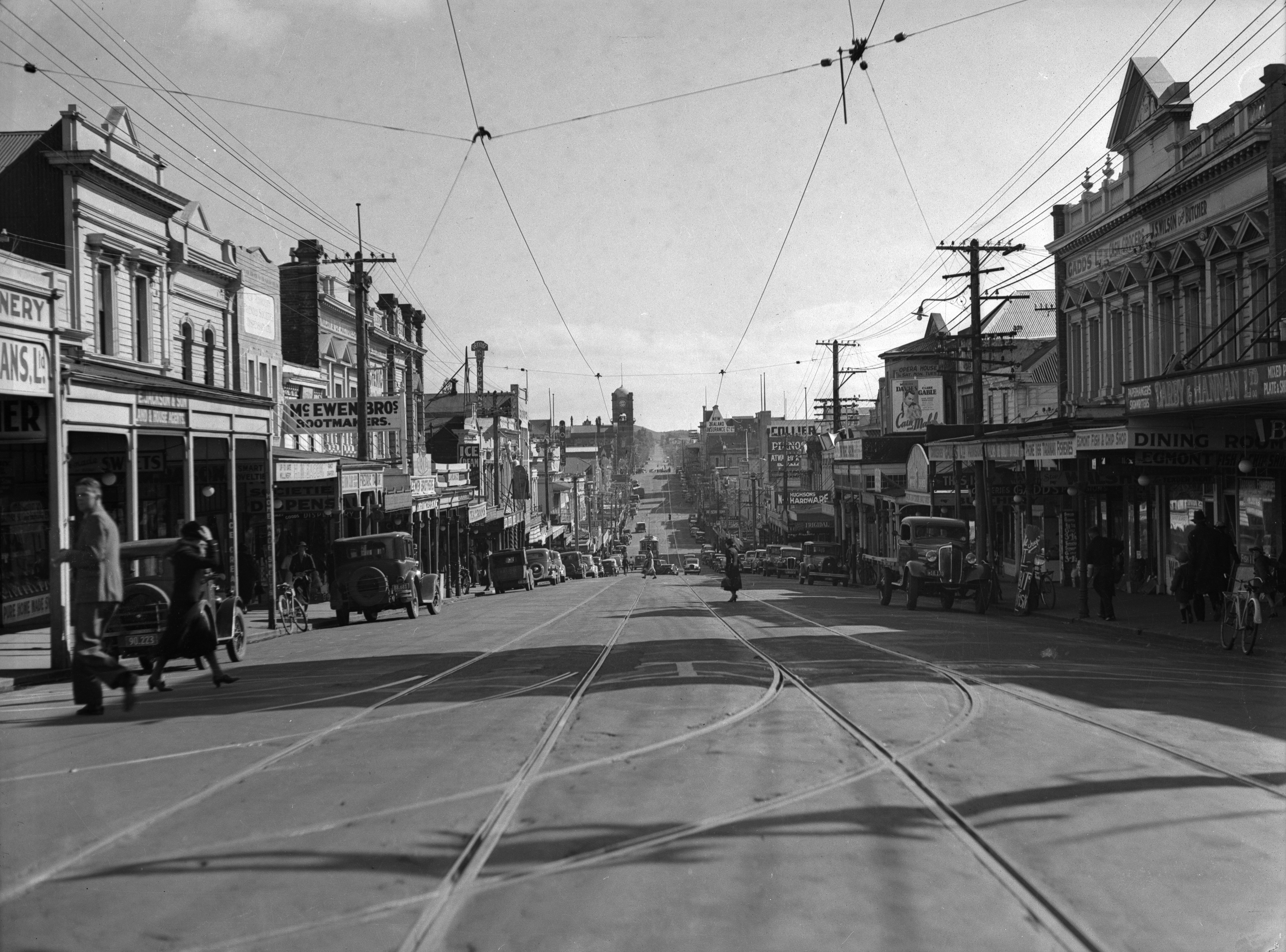
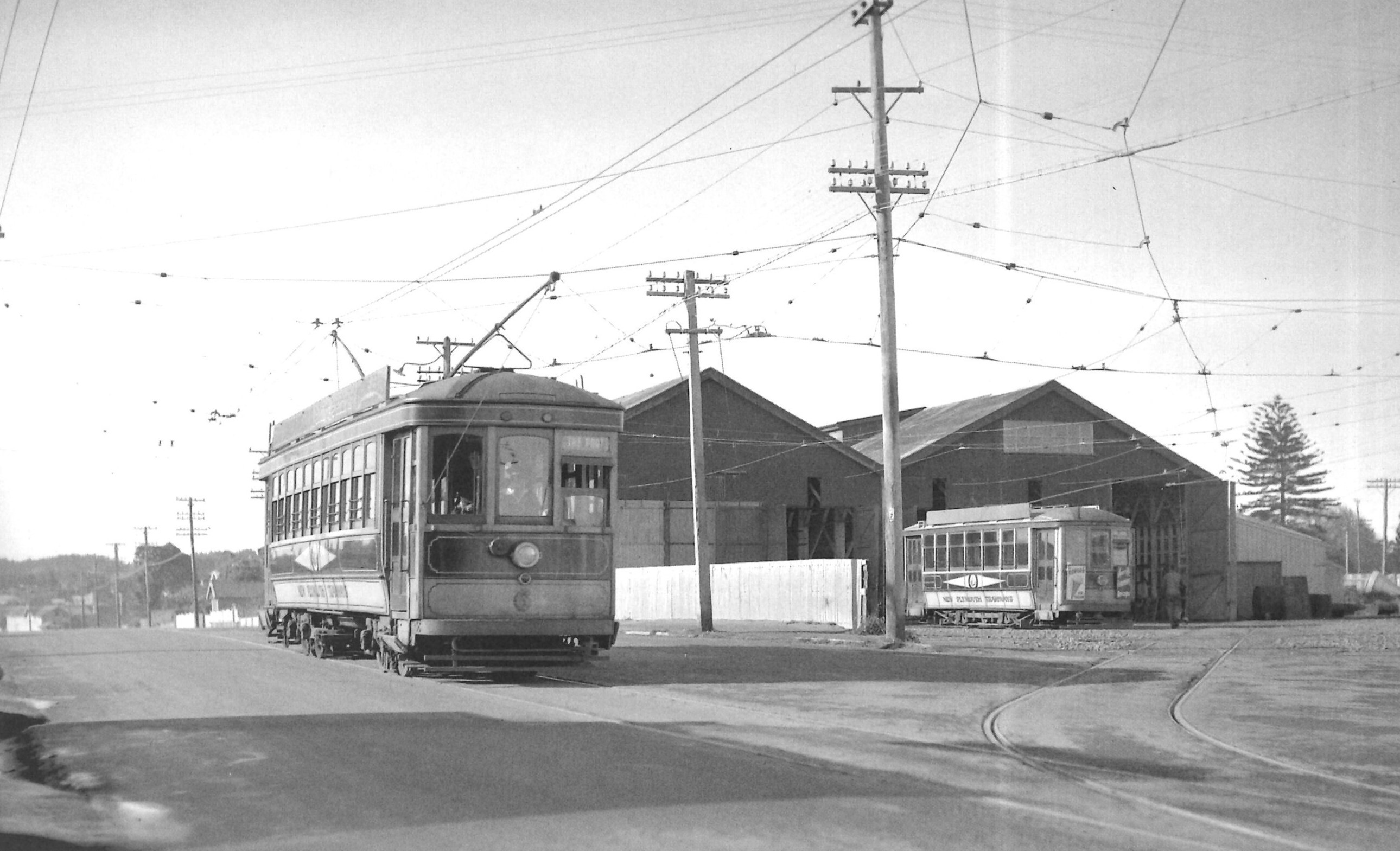
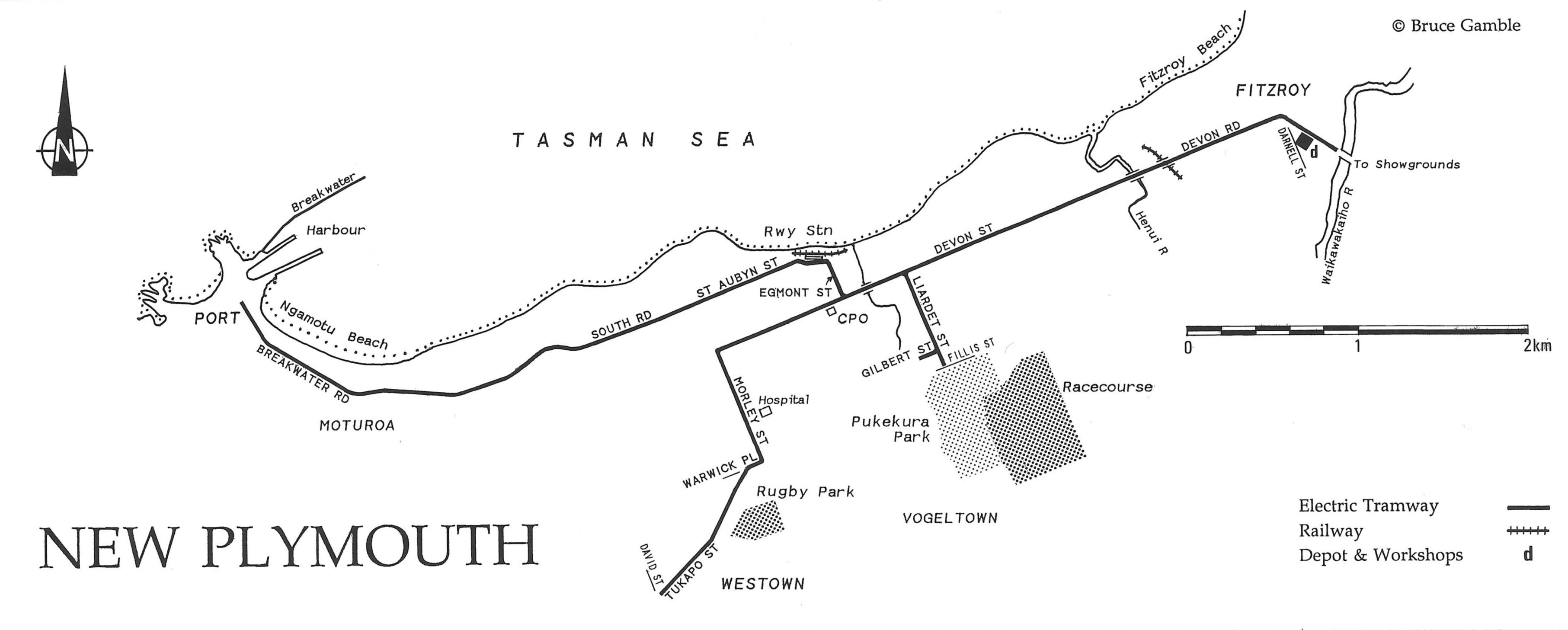
Nearly 40,000 New Zealand women filled job vacancies left by men during the Second World War and Betty Isobel Byers was one of them.
Betty began work as a conductor on New Plymouth’s trams in 1943, along with four other young women – the Taranaki Daily News reported that their appearance on the Fitzroy to Breakwater route “created considerable interest among passengers” but locals were assured that the girls would be well supervised and that their khaki overalls would shortly be replaced with navy blue skirt uniforms.
Petrol rationing and tyre shortages increased demand for public transport during the war, with more than 239,000 tram trips made around New Plymouth in February 1942 alone. Blackout regulations required cardboard shades to be fitted around trams’ interior lights after dark and posters urged passengers not to discuss the movements of those serving in the armed forces lest enemy agents be listening in.
One of nine children, Betty was working as a hairdresser when war broke out. She was interviewed about her experiences fifty years later, in 1993, and recalled the uniform she and the other conductresses wore:
We had an overall for a start and then we were measured up for the uniform and cap. There was a great big heavy greatcoat for winter wear which was a good heavy one… it was a skirt and jacket, not trousers in those days! We had to provide our own shirts but it was a good substantial uniform, it stood the wear and tear of the job.
Betty did not say what her parents, fruiterer Ernest Robert Byers (1887-1967) and Emily Ada Byers (nee Rowland) (1893-1984), thought of her new job but her memories of the different shifts provide a glimpse of social life in wartime New Plymouth:
Shifts were eight hours, first one was about 7 in the morning until about 3 then 3 until 11, the latest we’d finish was about half past 11 at night, after the pictures, that was the last tram, although there were dance trams in those days but they didn’t have conductresses on, they’d leave about half past 11 or midnight, there were dances at the trades hall and up at the city council there, there used to be a dance, and Fitzroy Hall, there used to be dances there in those days, that was quite a late tram but we used to get home on that sometimes.
More than 300,000 New Zealand men were conscripted during World War Two, meaning women had to fill many traditionally male roles. At first only those aged 20 or 21, like Betty, were required to sign up for work, but this was eventually extended to all women between 18 and 40. Those caring for children under 16 were exempt, unless they could arrange childcare, and all married women were too but ultimately even they had to register and by the end of the war around 38,000 Kiwi women had been manpowered by the government.
They were almost always paid less than men but Betty was lucky:
[The pay] was on male rates and it was good [compared] to what I was used to and of course in those days there was overtime with it and I can’t quite remember but I think there was double time for Sunday… we had a day off a week, six day week and then we’d get a long weekend and that long weekend would be a Saturday Sunday Monday or a Friday Saturday Sunday, you know, three days off.
Seven of these female conductresses were eventually employed on New Plymouth’s trams, with the Taranaki Daily News admitting that they had “proved their efficiency and ability to do a man’s work”. But in November 1945 they began to be replaced by men again, as soldiers returned home.
Betty wasn’t surprised, saying that
we weren’t put off really but we were always given to understand that at the end of the war the jobs were to go to the boys when they started to come back that was sort of [time to] look around for another job.
She had enjoying being on the trams, meeting so many new people and forming friendships with the other conductresses, riding her bike between the family home on Buller Street and the Fitzroy depot each day. But the war was over and so she went into the furniture trade instead, admitting that it was very dull working a normal day job again.
Betty Byers never married and spent the rest of her life in New Plymouth before dying on 27 July 2017 at the age of 95.
Please do not reproduce these images without permission from Puke Ariki.
Contact us for more information or you can order images online here.